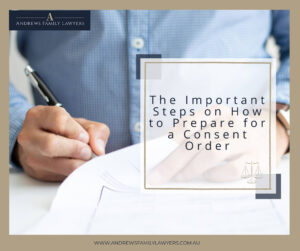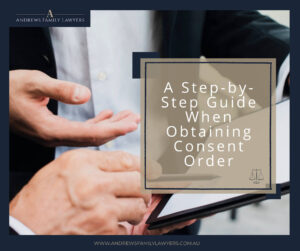What is a Binding Financial Agreement?
A Binding Financial Agreement (BFA) is a family law document that protects people’s finances in all relationships. Whether you are married or in a de facto relationship, a binding financial agreement can help you.
This article will cover what binding financial agreements are, what they’re for, the types and the pros and cons of having one.
Quick points
There are many different types of binding financial agreements depending on the parties’ circumstances and when it’s entered into.
A Binding Financial Agreements has many requirements that must be met for the agreement to be legally binding.
Binding Financial Agreements are good for divorcing couples.
There are downsides to a Binding Financial Agreements that can cause problems.
Types of Binding Financial Agreements
Binding Financial Agreements can apply to many relationship scenarios and can be made at different relationship stages. It is important to know about binding financial obligations, understand both the advantages and disadvantages, and be aware of the key points you need to know when considering a BFA.
Here are the most common types of Binding Financial:
1. Pre-nuptial Agreements
Known as Prenups, these are made before marriage. They outline how assets and liabilities will be divided after a divorce or separation.
Pros
Both parties are clear on each other’s financial obligations before they get married. This can prevent surprises later on and provide financial security.
Prenups are most useful for parties who have significantly more pre-marital assets than their future spouse. These can be protected from future claims in the event of a divorce.
Having a family law act on financial agreement before marriage can avoid litigation in the future. Making an agreement at a positive time in the relationship reduces the chance of adversarial negotiations that can lead to delays and added costs.
2. Post nuptial Agreements
Made after the marriage, these agreements are similar to Prenups but are created when a significant change has occurred in the couple’s financial situation, such as receiving an inheritance or selling a business. It is important to know about binding financial obligations, understand both the advantages and disadvantages, and be aware of the key points you need to know when considering a BFA. They help facilitate a financial settlement, protect existing assets, and ensure agreed property distribution between the parties.
Pros
Post nuptial agreements show how flexible a BFA can be. You can respond to changing circumstances as they happen.
Financial issues can cause stress in relationships. When addressed effectively, resolving new financial situations positively can strengthen the relationship. However, if not managed well, they can exacerbate relationship issues or contribute to the relationship failing.
3. Cohabitation Agreements
These are for couples who choose to live together without getting married or registering a de facto relationship. They protect the financial interests of both parties in the event of separation.
Pros
De Facto agreements are a good opportunity to talk about each other’s financial expectations. These agreements can outline how daily expenses are managed and strengthen the relationship.
Parties clarify each other’s responsibilities. This prevents disputes that may arise from misunderstandings.
4. Separation Agreements
These are made when a couple separates. These agreements outline how assets will be divided once spouses intend to divorce, helping to address relationship issues arise and providing clarity if the relationship fails.
Pros
Post-separation legal advice disputes can take months or years. Having an agreement for an amicable separation can save both parties time and money.
Separation agreements are also more certain. They give control to the parties rather than having to go to Court to get a decision.

5. Divorce Agreements
Made after a divorce, these agreements outline the division of assets and other financial matters to finalise the financial relationship between ex-spouses.
Pros
Divorce agreements allow the parties to have a clean break and move on after they’ve settled their arrangements.
Agreements made after divorce can cover all relevant assets, including assets acquired after separation.
Learn: 3-Step Process to Create a Binding Financial Agreement
What’s Required for a Legally Binding Financial Agreement
For a Binding Financial Agreement to be legally enforceable, it must meet several key requirements under the Australian Family Law Act. These are:
1. Written Agreement:
The BFA must be in writing and signed by both parties.
2. Independent Legal Advice:
Parties obtain independent legal advice before signing the agreement. This advice informs parties on their rights. It also helps the clients assess whether the agreement benefits them. They must know the implications of the agreement.
3. Full Financial Disclosure:
Both parties produce information on their finances. This includes assets, liabilities and income. The Court will set aside the agreement if you withhold or provide false information.
4. Family Law Act Compliance:
The agreement must comply with the Family Law Act’s BFA provisions. Can you enter a BFA at any time? No. There is a time limit. Divorced couples must arrange an agreement within a year of their divorce. De facto couples have two years from their separation date.
Note: If these requirements are not met, the court can declare the agreement invalid or unenforceable.

Benefits of a Binding Financial Agreement
Having a BFA in place can benefit both parties. These benefits are:
1. Financial Clarity
A BFA provides clarity around the division of assets and resources in the event of a relationship breakdown. This is important for many reasons, including:
Complex property pool
Some property pools have complex structures, such as business interests and trusts. Having an agreement in place can simplify a property settlement in the event of a separation.
Spousal maintenance
When discussing a BFA there’s an opportunity for the party with less financial resources to raise the issue of financial support. This is an important part of financial agreements that protects the less financially stable ex-partner.
2. Asset Protection
Binding Financial Agreements protect individual assets such as inheritances, businesses, or pre-marital assets from being divided in the event of separation or divorce. They help avoid stressful court action and mitigate court delays. Without a BFA, the Court decides for the parties, and its decision may not satisfy either party. Seeking expert advice ensures the agreement is fair and legally sound.
3. Less Court Involvement
Court proceedings have sped up since the Family Court merger in 2021. However, they can still be slow, often taking up to two years before clients get to Court. With a BFA, parties can avoid costly legal expenses and time-consuming court battles. Additionally, parties feel secure knowing their financial arrangements are clearly defined, with the guidance of experienced family lawyers ensuring their future capacity to manage finances is protected.
4. Customised Solutions
BFAs are tailored to each relationship’s specific circumstances and financial situation, including considerations from previous relationships. This can result in a fair outcome for both parties and help avoid unnecessary arguments about current assets. BFAs can take whatever form the parties agree to, with the benefit of expert legal advice ensuring their interests are protected.
Need help with Binding Financial Agreements? We can assist.

Do you need help with Binding Financial Agreements? We can help you out.
Risks of Binding Financial Agreements
BFAs can be beneficial. However, there are also risks to consider:
1. Limitation of Future Claims
A properly drafted BFA can address points that commonly arise in financial disputes. Entering a BFA may limit a party’s ability to claim spousal maintenance or property settlement adjustment if circumstances change significantly after the agreement is signed.
2. Relationship Strain
Negotiating a BFA, often referred to as a pre-nuptial agreement (pre-nups) or post-nuptial agreement (post-nups), can be emotionally difficult and can put strain on the relationship. This can be due to several reasons, including relationship breaks, financial stress, concerns about sensational newspaper stories, and the emotional toll of a break-up should the relationship end.
Trust issues
The party being asked to enter a financial agreement during the relationship may feel their partner doesn’t trust them. It may also send the message that their partner expects the relationship not to last. Additionally, discussing financial agreements may highlight a party’s liabilities or raise sensitive property matters, including concerns about protecting assets for future generations.
Inequality
Binding financial agreement is often sought because one spouse is the higher income earner, which can make the other partner feel forced into signing the agreement from a disadvantaged position. While Binding financial agreement aims to create an acceptable division of assets, it is essential that both parties enter the agreement voluntarily and with a clear understanding of their rights.
3. Legal costs
Legal representation and drafting the binding financial agreement can be costly. However, it’s generally cheaper than litigation in the event of a relationship breakdown. A well-prepared BFA can address complex issues such as superannuation entitlements, the division of family farms, and other significant assets, providing clarity and protection if the relationship ends. The cost of a BFA is largely determined by:
The lawyer’s fees.
Amount of negotiation.
Whether mediation is required.
Complexity of the asset pool.
Disclosure required.
Check this blog to know the difference between a Binding Financial Agreement and a Consent Order.
A binding financial agreement can be beneficial for parties and can apply at any stage of a relationship. When considering a binding financial agreement, it is important to evaluate six key points, including the parties’ occupations, financial circumstances, long-term goals, binding financial obligations, superannuation entitlements, potential court delays, and how it relates to break-ups and cohabitation agreements. While binding financial agreement offer many positives, such as clarity and asset protection, there are also drawbacks to consider.
By reading this, you can make an informed decision about whether a binding financial agreement is for you and your partner.
Peter provides exceptional service, is understanding and compassionate. He made sure everything was explained, was open and honest and always had my best interests at the forefront.
I would recommend Peter to anyone needing a family lawyer.
– Sheree Anderson
If you need assistance with family law matters, Andrews Family Lawyers can help.






